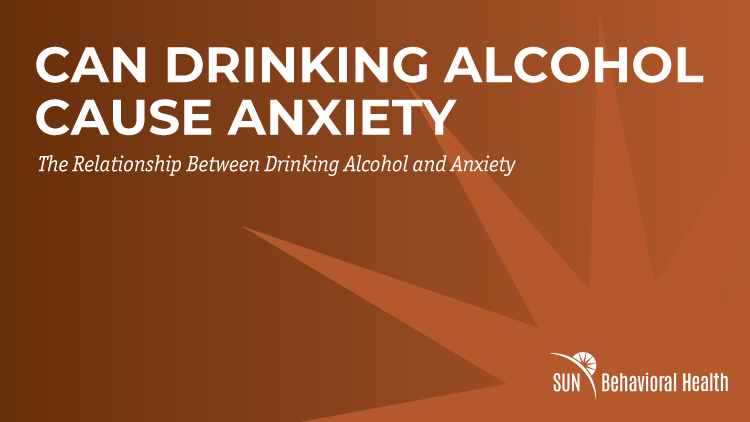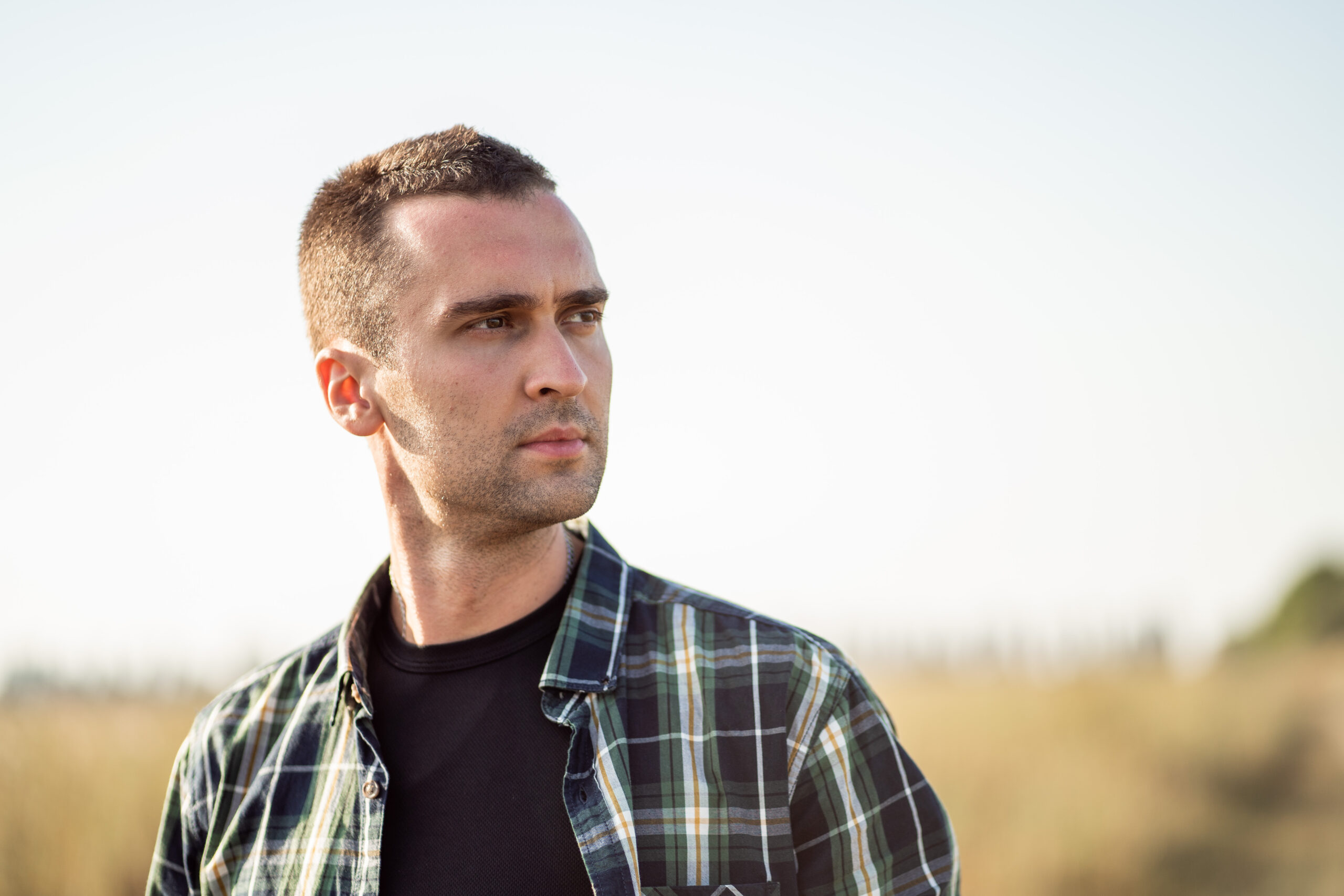Services
- Home
- Mental Health
- Who We Treat
- How We Treat
- Patients & Visitors
- About
- Lexington
close

Alcohol is manipulative, and anyone managing an alcohol use disorder (AUD) will agree with this. After a drink or two, the mind begins to slow down. Feelings of peace and well-being are present, and whatever you were worrying about an hour ago feels like a vague memory. For many who manage things like anxiety or rumination, alcohol can feel like a magical cure. This is partly what makes it so attractive to the 42% of Kentucky residents that regularly consume alcohol.
Unfortunately, those happy/fuzzy feelings don’t last long. In mere hours after your last drink, your body is working in overdrive to heal the damage alcohol has done. Some eventually develop alcohol use disorders because alcohol works behind the scenes to change brain chemistry and modify our cravings and behaviors. So while it may initially seem like a brilliant solution to a racing mind, it truly is “cunning, baffling, and powerful.”
In other words, drinking might make you feel good at the time, but it’s ultimately making you feel worse – and much quicker than you realize. One of the ways it does this is by causing or worsening feelings of anxiety or “impending doom.” But why? How can it go from making you feel so good to making you feel so miserable?
At SUN Behavioral Health in Kentucky, we dedicate our lives to healing our community from the damage alcohol has done. Today we’re here to talk about how drinking alcohol can cause anxiety and what you can do to stop it.
From the moment alcohol enters the body, various organs go to work. It begins by lining the stomach and small intestine, and from there, it is released into the bloodstream. It then travels to the brain where it begins to alter your mood and behavior. During all of this, it’s impacting other organs, like your liver and kidneys, which are working to eliminate it.
Alcohol works as a diuretic, which means it increases urine production. Why is this important? Because while your body is working to process and eliminate alcohol, it’s also dehydrating you. This can cause a myriad of unpleasant side effects the next day, including headaches and anxiety. So when you wake up the next morning after drinking more than the recommended amount (1 drink per day for women, 2 drinks for men), you’re going to experience these things.
This is just what happens the night of drinking and the morning after. These unpleasant side effects usually wear off after you’ve rehydrated, eaten something nutritious, and had a nap. Unfortunately, for people who consume alcohol regularly, these side effects increase in frequency and severity. Alcohol is a depressant, which means it slows down the entire nervous system. This inevitably has an impact on the way our brains function and manage stress.

Alcohol impacts important areas of the brain both short-term and long-term. The effects of one night of heavy drinking can be reversed, but it’s much harder to reverse years of heavy alcohol use. Some of the heavily impacted areas of the brain include:
Notably, memory is one of the largest things impacted by both short and long-term alcohol use. You may notice this on a night you drink too much. The next morning, you may not remember all of the events from the night before. As your AUD progresses, so will the damage to your hippocampus, which can alter past, present, and future memories. Frequent alcohol poisoning (or drinking too much at once) can also cause damage to the brain.
Yes. If you’re already managing an anxiety disorder, alcohol use is going to make it worse. There are a couple of reasons for this. As mentioned earlier, alcohol is a depressant, which can ultimately lower mood and drain the brain of healthy neurotransmitters like serotonin. Heavy alcohol use also causes deficiency in many vitamins, including B vitamins and magnesium, which are both important for mood regulation and an overall sense of health and well-being.
Additionally, many individuals experience shame with their alcohol use disorders. They may struggle to keep up with work, school, or relationships, which can make them feel inadequate or fearful for the future. Alcohol also heavily impacts sleep, causing daytime fatigue and unclear thinking. This can contribute to worsening anxiety.
Finally, if you’re taking medication for an anxiety disorder while drinking alcohol, the medication can no longer do its job. Alcohol essentially cancels out the work the medication is trying to do.
“Hangxiety” is a non-medical term used to describe the feeling of intense anxiety the morning after a night of heavy drinking. The “hangover” can cause symptoms like headaches or dehydration that exacerbate feelings of anxiety. Suicidal thinking and panic attacks can happen the morning after drinking, and these feelings don’t usually go away until you’ve had proper sleep, hydration, and healthy foods. Shame plays a role in hangxiety as well. If you’re feeling guilt from the night before, whether from your actions or because you aren’t happy with the amount of alcohol you drank, it’s going to contribute to these feelings.
Hangxiety happens to anyone who drinks more than the recommended amount of alcohol. It isn’t necessarily a sign of alcoholism. If you find that you’re drinking more than you’d like, or if it’s starting to impact other areas of your life, it might be time to rethink your relationship with alcohol.

If you or someone you love is having a hard time controlling how much alcohol they drink (or how often they drink), it might be time to seek treatment. One thing’s for sure: alcohol and anxiety don’t mix. It’s easy to think that alcohol is easing your anxiety, but in reality, it’s making it worse.
If you ever find yourself in a position where your anxiety is causing suicidal thoughts or overwhelming feelings, please don’t hesitate to contact us. We offer 24/7 crisis care, which means you’re never alone. Our doors are always open and our staff of compassionate experts are standing by, ready to get you through this.
At SUN Behavioral Kentucky, we know that every patient’s healing journey is unique. That’s why we offer a large variety of treatment programs for alcohol use disorder and anxiety.
Alcohol detox happens in the first 72 hours after your last drink. It’s the process your body goes through to flush the alcohol out of its system. During this time, your body is working hard to rid itself of any toxins left behind. This is when withdrawal symptoms usually start, peak, and subside.
SUN Behavioral Health’s alcohol detox happens during this time. You’ll come in and meet with one of our clinicians to be assessed for your needs and to create some goals for yourself. People who choose detox stay in our facility so we can monitor their condition, treat their withdrawal symptoms, and help them heal safely and efficiently.
Inpatient treatment provides patients with a stable and supportive environment. Here, they can focus on their recovery while being surrounded by trained and licensed professionals and others who are going through the same thing. The side effects of alcohol use are also treated in this environment.
During inpatient treatment, patients stay on sight at the rehab facility 24/7. They get to experience a wide variety of activities and programs during their day from individual therapy sessions and group sessions to activities such as yoga or hobbies that help rebuild new habits and focus the mind on healing.
If inpatient treatment doesn’t work for your schedule or your lifestyle, outpatient and PHP can help. Outpatient programs can also act as a stepping stone between inpatient and the end of treatment. This type of care usually does not require patients to stay at the facility while being treated. When visiting the facility, patients spend time in customized sessions throughout the day. This can be beneficial for full-time employees seeking treatment because it allows patients to continue to maintain a life outside of treatment.
Yes, and this is something we specialize in at SUN Behavioral Kentucky. If you’re managing a mental health condition alongside an AUD, it’s called a co-occurring disorder. It’s treatable, and we can help. Effective addiction treatment addresses both the mental and physical aspects of each individual.
Treatment For Alcoholism And Anxiety Disorder
If you or someone you know is living with an alcohol use disorder, anxiety, or both, SUN Behavioral Health Kentucky can help. If you have any questions or would like to learn more about our available treatment options, call us today at 859-429-5188 so we can help you get your life back.
Anxiety after a heavy night of drinking usually lasts until after you’ve gotten some sleep, eaten a healthy meal, and replenished the fluids you lost from the night before. For some people, this isn’t enough, and it can take up to 48 hours. This is contingent on how much someone drank and whether or not they’re currently managing a mental health condition.
Yes. Alcohol use disorder can make mental health conditions like anxiety worse in the long run.
Dehydration, shame, guilt, and fatigue can all trigger anxiety after a night of drinking.